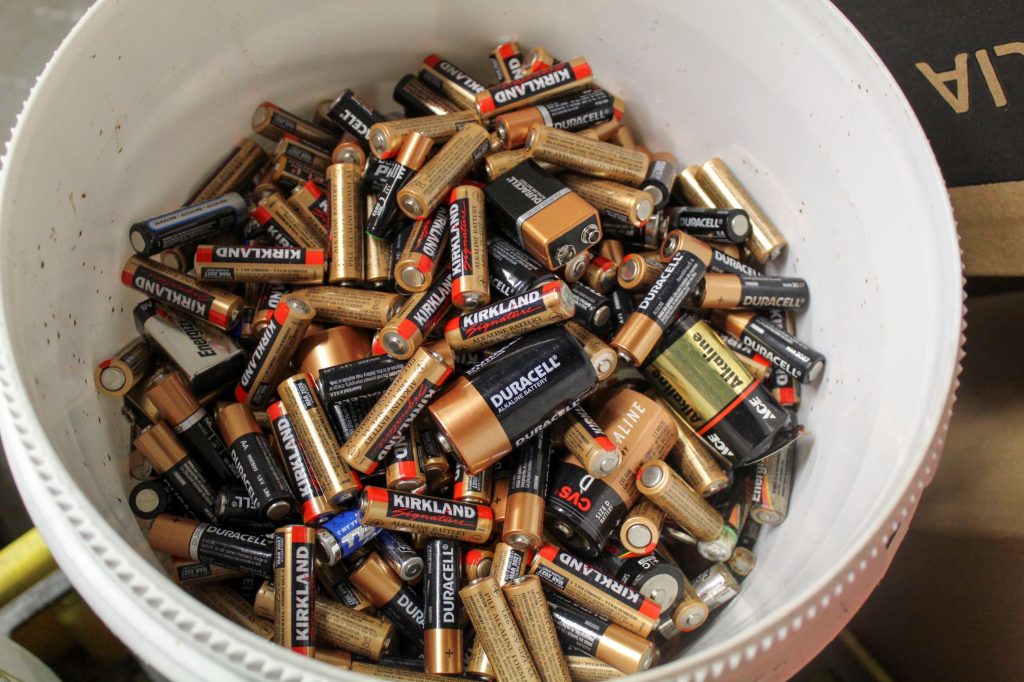Our world runs on batteries, from the ones in our cars to those in our smartphones. Most people only think of them when they run out, but we should all think about how to handle and dispose of them to keep ourselves and our homes safe. Today, we’re going to look at household battery disposal, how to handle and store them, what hazardous household waste they can contain, and where you can dispose of them.
Automotive Batteries
In New England, cold weather can make short work of automotive batteries for unwary drivers. Regardless, we all go through car batteries as they lose charge. If you do have to handle one, make sure to do so with acid-resistant rubber or leather gloves. Keep sparks, flames, and metal objects away from batteries, and cover any removed battery’s posts with electrical tape.
Do not throw car batteries in the trash, as they contain lead and sulfuric acid. Most vehicle battery retailers will accept used batteries when purchasing a new one. If your waste management company has a recycling center or a community household hazardous waste event, they usually take these there.
Household Batteries
Car batteries may be the biggest, but you likely have dozens of batteries at home of various shapes and sizes, many of which contain hazardous materials. Make sure to know how to deal with consumer batteries of all kinds.
- Alkaline batteries: Most non-rechargeable batteries in the US today are alkaline batteries. These are safe to dispose of in the trash. They tend to leak potassium hydroxide once they lose charge. This can damage electronics and burn skin, so inspect batteries before handling them.
- Nickel-cadmium rechargeable batteries: Commonly known as “rechargeable batteries” or NiCads, these batteries can be loose or built into electronics. They contain the hazardous metal cadmium and should not be thrown in the trash.
- Lithium batteries: Found in computer and camera electronics, including smartphones, lithium is a hazardous substance that is reactive to water and can cause fires. Do not throw them in the trash.
- Button batteries: These small batteries are often found in small devices like watches and hearing aids. Many button batteries contain mercury and should not be thrown in the trash. Many stores that sell those small products will accept spent button batteries.
For all batteries that can’t be disposed of in the trash, they should be stored safely in a secure, dry place out of the reach of children and pets. Make sure the container is non-metal and vented, and avoid mixing different kinds of rechargeable battery types. Store until the next available disposal event or take them to your local disposal center.
Here at the NEDT Household Hazardous Products Collection Centers, we believe that through knowing your disposal options and doing your research, we can all have safer, greener lives. If you’d like to learn more about how to deal with common household hazardous waste, check out our Fact Sheets. If you need help disposing of your household hazardous waste, find your closest location or contact us for pick up!



Leave a Reply